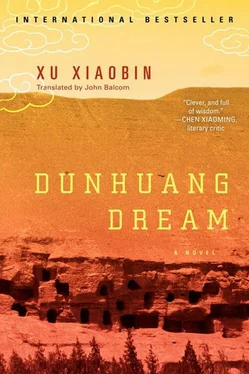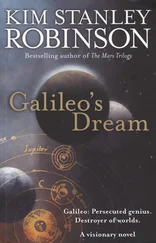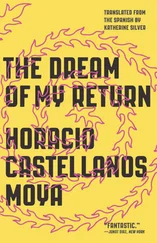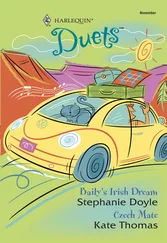“Do you think you can separate spiritual love from physical love?” He frowned seriously.
“Yes.”
“You’re wrong,” he countered. “Spirit and flesh basically cannot be separated. There should be no obstacles from spirit to flesh, and from flesh to spirit. Only then is love natural and whole.”
“Perhaps. But did you ever think what would happen after realizing complete love? Have you thought about that?”
He looked at her in surprise. He felt that her voice was filled with hopelessness.
“Nothing can be complete. If you realized complete love, then love would perish. The next step is hate, or death. Death is, of course, better than hate.”
He didn’t protest. His lips were tightly clenched.
“That’s the coward’s argument,” he said after a protracted silence.
There was total silence. The pale sun had risen high above and the golden rays of light had turned white, whiter than the sun itself.
She couldn’t believe he contradicted her.
He could hardly believe it himself.
But he seemed as determined as ever. His lips were pressed tightly shut with no sign of backing down.
“You’re right,” she replied softly after a long pause. Then she turned and walked away.
He was left standing there alone. The wind messed his spiky hair. He became a hollowed-out silhouette, leaving nothing but a long, thin shadow on the ground.
13
For some reason, Chen Qing’s stories were no longer that important to Zhang Shu. In his tales, the beautiful was beautiful, the ugly, ugly; the good was good and the evil, evil. Zhang Shu preferred stories in which the beautiful and ugly, the good and the bad were mixed. He liked nothing better than discovering the beautiful in the ugly or the good in the evil. In all likelihood, the reason he was attracted to the story of Lakshmi was because she was never the same — she could take delight in bathing with her son in Yu-Chi Yiseng’s painting but wear the skin of her son in a Tibetan painting. Moreover, her overweening competence was displayed by the important roles she played in the pantheons of Brahmanism, Hinduism, Buddhism, and Tantric Buddhism; this alone said it all.
This only served to deepen his fear of women. He thought of Yu’er and that woman called a bodhisattva, and they all seemed to possess chimerical, enigmatic, and ancient qualities. He had more trouble discerning the real Xiao Xingxing, probably because she had so long worn a coat of armor that she was divided against herself.
In days of old, according to legend, Sanwei Mountain did not possess its three peaks and was called Ox Ridge Mountain. It was constantly illumined, by the sun during the day and the moon by night. But suddenly came a day when there was no sun or moon. Everyone inquired everywhere and learned that it was something bad wrought by Sirius, the Heavenly Hound, which had seized the sun and moon and was then going to savor them slowly in its cave.
Everyone was anxious to rescue the sun and moon. There were three brothers by the names of Dawei, Erwei, and Sanwei who were all masters of the martial arts. The three brothers called together all the people in the area and with lanterns and torches they were led by the mountain spirit to the cave of Sirius.
Hearing the exploding fireworks and the banging gongs and drums, Sirius was frightened and trembled. Rushing out of the cave, he was confronted with the sight of hoes, knives, spears, swords, and clubs. So many had come for his hide! Startled, he ran. But Dawei was quick. He lopped off half his tail with his sword. In pain, Sirius tucked what was left of his tail and fled. That’s why to this day dogs always tuck their tails when they run.
The sun and moon were saved and Ox Ridge Mountain was constantly illumined. Fearing lest Sirius return to steal the sun and moon, the three brothers took up residence on the mountain to protect the celestial bodies. With the passage of time, the three brothers became the three peaks. In order to memorialize their contribution, the people changed the name of Ox Ridge Mountain to San (meaning three) wei Mountain.
When Chen Qing finished his tale, Zhang Shu recorded it hastily. Xiao Xingxing appeared in the doorway.
Zhang Shu liked to apprise women in silence.
Xiao Xingxing was no different from most women in that she couldn’t stand silence. But confronted with silence, she would become talkative, though her speech was not for expression but rather for covering up.
Zhang Shu, though cognizant of this point, didn’t know what she was trying to cover.
Xiao Xingxing actually enjoyed playing the role of an elitist character, remote from the masses. On account of Zhang Shu’s formidableness, she satisfied herself with playing the naïf. This was one of the reasons she wanted to keep their contact to a minimum.
He always had any number of reasons for coming to her room, but she never had a reason to reciprocate.
Therefore, when she gracefully appeared in the doorway, he was somewhat taken aback.
“I heard you had trouble on the way to the Yulin Caves. Is that true?” he asked, examining her. That day he had gone to see her, but when he arrived at her door and heard Wuye, he turned around and left.
“That’s right,” she said, smiling unconcernedly. “We were lucky and not swallowed by the ‘Bermuda’ of Dunhuang.”
“Ha, so you have a new theory with which to explain things. Did you see the Three-eyed Buddha at the Yulin Caves?”
“What Three-eyed Buddha? The bus rolled over on the mountain switchback. We never made it!”
Chen Qing narrowed his eyes and fixed his gaze on her. “What do you know, young lady?” Then he began to speak ever so slowly:
“The great Buddha at the Yulin Caves has a big, jet-black eye in the middle of his forehead — that’s why he is called the Three-eyed Buddha. When the statue was being carved, the benefactor paying for the statue asked the carver to add an eye to the Buddha’s forehead, making things extremely difficult for the carver. He thought and thought but didn’t know where to get the eye and so decided to pluck out his own. As this thought popped into his head, the small stream beside him began to gurgle. He looked over and saw a large clam, its shell opened, revealing a large shiny pearl. The carver was overjoyed. Carrying the pearl in both hands, he ran to the cave. It’s strange, before that the wind always blew and the cave was filled with dust, but after the Buddha received his third eye, dust never blew into the cave. For this reason, our ancestors referred to the pearl as the ‘dust-dispelling pearl.’ When the Buddha is happy to see folks, the weather is clear, but when he isn’t in the mood, the wind blows, kicking up the dust. You went on a day when the Buddha was in a bad mood. I bet someone on the bus had bad luck.”
“Do I look like someone who has back luck,” said Xingxing mischievously, throwing Zhang Shu a glance.
Chen Qing snorted and said, “Not you, but that young fellow, the one called Wuye or whatever. His name is awkward sounding! He looks dangerous to me. Haven’t you told him to go to see Abbot Dayejisi to have his fortune told?”
Xingxing suddenly grew worried. Chen Qing and Dayejisi were, with regard to the importance of reading a person’s fortune, the same. So was she really going to bring bad luck to Wuye? If that was the case, she had to leave him immediately and forever.
14
It was a gloomy day. The air was filled with a frigid mist beginning in the morning. The moment she opened the door, a foul air entered her room. She suddenly had a bad premonition.
In the mist Wuye was leaning on the rickety old bike that belonged to Zhang Shu.
“Going?”
“Let’s go.”
“Isn’t Zhang Shu going?”
Читать дальше







![Theresa Cheung - The Dream Dictionary from A to Z [Revised edition] - The Ultimate A–Z to Interpret the Secrets of Your Dreams](/books/692092/theresa-cheung-the-dream-dictionary-from-a-to-z-r-thumb.webp)




